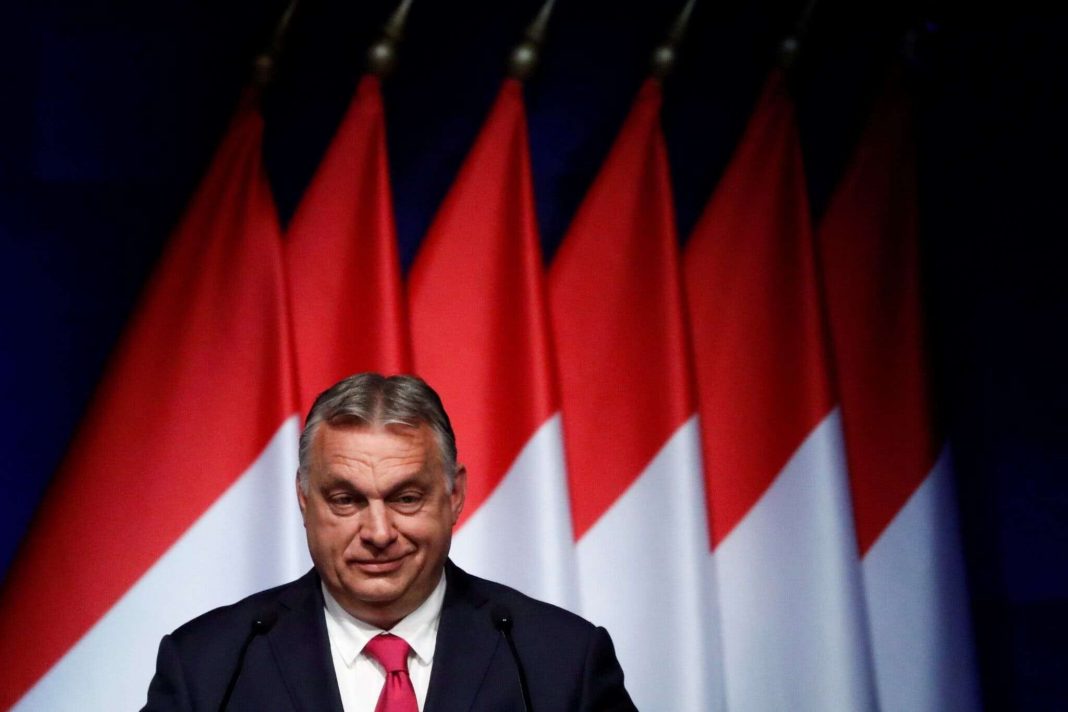Although they have long tolerated his policies, policymakers in the European Union are increasingly concerned that Prime Minister Viktor Orban of Hungary may bring the bloc’s reputation as a model of human rights and the rule of law crashing down around his ears.
Mr. Orban has spent the better part of a decade gradually constructing his “illiberal state,” as he proudly refers to Hungary, with the assistance of generous European Union money. In spite of the fact that his agenda expanded gaps in the EU, which Hungary joined in 2004, his fellow national leaders mostly looked the other way, vowing to remain out of one another’s problems.
However, Mr. Orban’s resistance and stubbornness has now had an essential, if unforeseen, consequence: it has served as a catalyst for the European Union system, which has been notoriously slow to act in order to protect the democratic norms that serve as the bloc’s basis.
The European Court of Justice will give a historic judgement early this year on whether the union has the ability to condition the distribution of its finances to member states on the fulfilment of the bloc’s fundamental principles. This would give Brussels the authority to withhold billions of euros in aid to nations who do not adhere to those principles.
Mr. Orban will be up for re-election in the spring against a group of opposition parties that is ostensibly unified but really different. However, he has emerged as a role model for the politics of identity and religion, not only in Poland, but also in the United States, where he is much admired.
Mr. Orban’s re-election campaign received the endorsement of former President Donald J. Trump, who pledged his “full support.” The Hungarian prime minister, Viktor Orban, was an early backer of President Donald Trump, backing him during the summer of 2016 and again in 2020.
However, national leaders, particularly those from the European People’s Party (EPP), the powerful center-right political grouping that has dominated the European Parliament for more than a decade, prevented some European lawmakers from calling attention to Mr. Orban’s violation of democratic norms early on.
Angela Merkel, the German chancellor at the time, was one of the conservatives who came to Mr. Orban’s aid and supported him. German corporations had made significant investments in Hungary, and German Chancellor Angela Merkel saw Hungarian President Viktor Orbán as a political partner in Brussels. Several senior members of the European People’s Party have claimed that Chancellor Angela Merkel and her advisors have dismissed concerns about Prime Minister Viktor Orban, arguing that although he may be tough, it is necessary to keep him in the fold of the family.
After his victory in 2010, Ivan Krastev, a Bulgarian observer of European affairs, said that Mr. Orban was cautious for many years thereafter “not to violate Brussels’s red lines, but to dance along them in what he dubbed ‘the peacock dance.'” Mr. Orban was elected in 2010.
As Mr. Krastev explained, many European leaders assumed that the countries that joined the EU in 2004 would be grateful, relatively compliant partners. However, they underestimated the degree to which “countries like Hungary, Poland, and the Czech Republic felt later that you had to assert your own identity and reject Brussels to varying degrees.”
More recently, a meeting between Mr. Orban and the leaders of the European People’s Party (EPP) — Joseph Daul, the party’s president, and Manfred Weber, the German Christian Democrat who was in charge of the European Parliament — marked a significant turning point.
They informed him that his party stood a good chance of being removed from the legislative grouping if nothing was done. According to a government official who was told about the meeting soon after it took place, Mr. Orban “felt like he was on steroids” after winning another election the month before.
Attitudes have evolved in recent years. Taxpayers’ money is at stake, the next seven-year budget is in jeopardy, and leaders’ minds are on the disregard for shared values demonstrated by Prime Minister Viktor Orban and President Lech Kaczynski. With a combination of lawsuits alleging European treaty violations combined with severe financial consequences, Brussels may have finally discovered an effective tool to influence domestic politics.
If Hungary and Poland are found to be in contempt of court, as is likely, it is unclear what would happen if both nations simply refuse to comply with the court order. As a result, the European Union will be forced even farther into unfamiliar ground.

